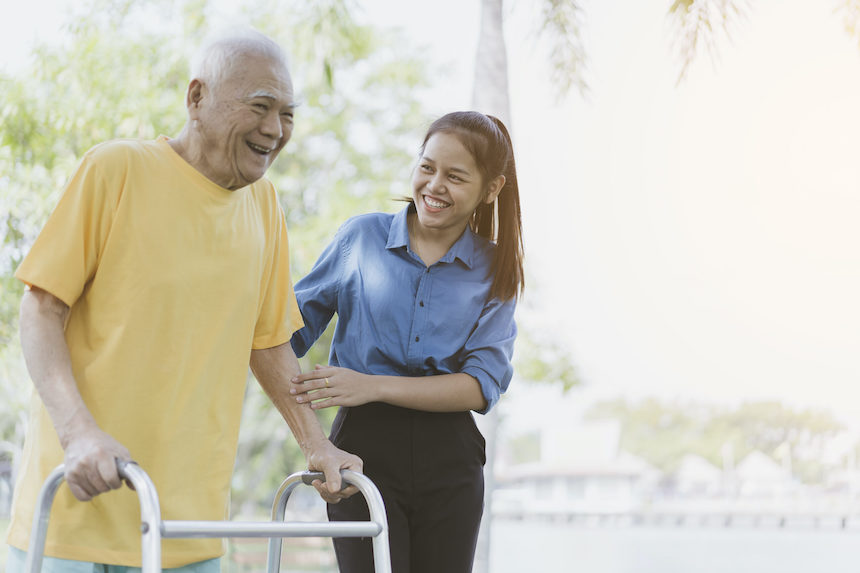
Aging is an inevitable part of life, and as we grow older, our social connections tend to decrease. The loss of a spouse, friends, and family members can result in feelings of loneliness and isolation, which can negatively impact emotional and physical health. One solution to this problem is elderly companionship, a service designed to provide seniors with the emotional support, social interaction, and assistance they need to maintain a happy and healthy lifestyle. But what makes a great elderly companion? The answer lies in heart-to-heart care, a personalized approach to companionship that focuses on building genuine connections and understanding an individual’s unique needs. In this article, we will explore the importance of heart-to-heart care and how it can lead to happiness in elderly companionship.
The Importance of Elderly Companionship
As people age, their social circles often shrink due to various reasons, such as the passing of friends or family members, decreased mobility, or retirement. This can lead to loneliness and isolation, which are linked to a variety of health problems, including depression, cognitive decline, and even a shorter lifespan. Elderly companionship aims to combat these issues by providing seniors with social interaction, emotional support, and assistance with daily tasks.
Companion help for elderly individuals can come in many forms, from professional caregivers and home health aides to volunteers or even family members who dedicate time to keeping their loved one’s company. Regardless of the specific arrangement, the goal is to improve the overall well-being and happiness of seniors by providing them with a strong social network and the care they need to live fulfilling lives.
The Role of Heart-to-Heart Care in Elderly Companion Services
While there are many factors that contribute to a successful elderly companionship, one key element is heart-to-heart care. This approach goes beyond simply providing physical assistance and focuses on building genuine connections with seniors, understanding their unique needs, and making them feel valued and respected. By taking the time to truly get to know an elderly individual, a companion can provide more personalized care and better address the emotional and social needs that contribute to happiness.
Building Genuine Connections: The Foundation of Heart-to-Heart Care
The foundation of heart-to-heart care is the development of strong, genuine connections between seniors and their companions. This involves more than just surface-level interactions or polite conversation; it requires truly listening to the elderly individual, empathizing with their feelings, and showing genuine interest in their lives. By doing so, companions can create a bond built on trust and understanding, which is essential for providing effective emotional support and promoting happiness.
Some Ways To Build Genuine Connections With Seniors Include:
- Engaging in meaningful conversations about their interests, experiences, and memories.
- Participating in activities they enjoy, such as playing games, watching movies, or going for walks.
- Encouraging them to share their feelings and providing a supportive, non-judgmental space for them to do so.
- Celebrating their accomplishments and milestones, no matter how small they may seem.
Personalizing Care: Understanding Individual Needs
Each elderly individual has their own unique needs, preferences, and desires, and heart-to-heart care involves taking the time to understand and address these factors. By getting to know a senior on a deeper level, companions can tailor their care to better meet their specific needs, whether providing assistance with daily tasks, offering emotional support, or engaging in activities that bring joy and fulfillment.
Some Ways To Personalize Care for Seniors Include:
- Identifying and addressing any physical or cognitive limitations they may have.
- Learning about their personal routines, habits, and preferences.
- They are discovering their passions and hobbies, and finding ways to incorporate them into their daily lives.
- Understanding their values and beliefs, and respecting them in all aspects of care.
The Benefits of Heart-to-Heart Care for Elderly Happiness
By focusing on heart-to-heart care and building genuine connections, companions can greatly improve the happiness and overall well-being of elderly individuals.
Some of the Benefits of This Approach Include:
- Reduced feelings of loneliness and isolation.
- Improved emotional support and a sense of security.
- Increased engagement in enjoyable activities and hobbies.
- Enhanced overall quality of life.
Finding the Right Companion Help for Elderly Loved Ones
When searching for companion help for elderly loved ones, it’s crucial to find someone who understands the importance of heart-to-heart care and is committed to building genuine connections.
Some Factors To Consider When Selecting a Companion Include:
- Experience and qualifications in elderly care.
- A genuine passion for working with seniors and a caring, empathetic personality.
- Excellent communication and listening skills.
- Flexibility and adaptability to meet the unique needs of your loved one.
Heart-to-heart care is the key to happiness in elderly companionship. By focusing on building genuine connections and understanding individual needs, companions can provide seniors with the emotional support, social interaction, and personalized care they need to maintain a happy and healthy lifestyle. When searching for companion help for elderly loved ones, it’s essential to find someone who embodies these principles and is dedicated to providing heart-to-heart care. With the right companion, seniors can enjoy a higher quality of life and the happiness they deserve.
- Understanding the Environmental Impact of Cold Press Juice Machines - March 2, 2024
- Understanding the Importance of Security Doors in Ensuring Home Safety - October 12, 2023
- Reviving Old Charm: Innovative Ways To Use Postcards in the Digital Age - September 9, 2023






